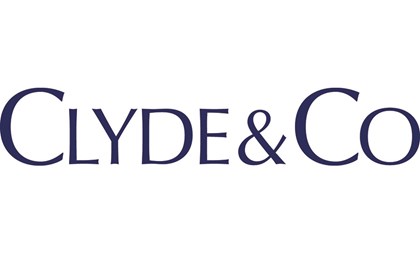
International work can be as thrilling as it is intense for trainee solicitors. We spoke to four trainees at Clyde & Co about what it takes to thrive in the exciting world of cross-border law.
The prospect of international work is one of the biggest pull factors a law firm can offer prospective trainees. At Clyde & Co, the opportunities for cross-border work are abundant - and not just for qualified lawyers. At the trainee level, this could entail corresponding with colleagues and clients from different cultures, interacting with government bodies, getting involved in projects in far-flung corners of the globe, or getting to grips with different legal systems. And that's all before the travel opportunities that may arise post-qualification...
But we’re getting ahead of ourselves. Working across borders is exciting of course, but it isn’t without challenges. There are all sorts of extra layers and considerations to wrangle with when a legal matter spans different jurisdictions, and lawyers may need to have a handle on multiple time zones, legal systems depending on the matter. Firms with an international presence need trainees that are up to meet these challenges. Although it’s competitive, students shouldn’t be put off. Our trainee interviewees highlighted that “it’s more about attitude to work than anything else.” The complexity of cross-border work does mean you have to be up for the challenge, but willingness to learn and develop goes a long way.
Clyde & Co has more than 50 offices around the world, and that international network comes into play in a number of departments that trainees sit in. We spoke to trainees in three such groups – technology, real estate and (the clue is in the name) international arbitration – about their experiences of cross-border work from Europe to the Middle East to the US and beyond…
Chambers Student: What kind of person is suited to international work?
James Reynolds: With cross-border work there’s a lot of complexity, so I think the sort of person that’s suited is the sort of person who’s up for a challenge.
Sachin Shah: It can be very intense, but also very rewarding! You’re dealing with a lot of people on a daily basis, so if you’re a people person that really is the crux of what we do. Commercial law in general is a people-based business.
Sarah Hill-Smith: Someone who is very curious about the world and willing to learn and to take the initiative. I have really benefitted from studying qualitative subjects, like history and politics, which involve analysing a lot of content and drawing out the relevant information. Besides that, any academic path will give you skills you can bring to the practice; everybody brings different skills and experience to the table.
CS: How much does international work impact your work-life balance?
Zahra Laher:There are peaks and troughs. At certain times, due to the nature of the work or with deadlines approaching you can be busy, but the firm offer a good work life balance.
SHS: There were times I was working longer hours than usual, but whenever there’s a deadline or a need to work late, everyone in the team is online – it’s very much all hands to the pump. It makes it easier because you’re working with lots of other people and you can help each other out. When there are no deadlines, you work to get your work done and to meet your hourly requirements – besides that the firm really respects that your time is your own.
Practices in focus
International Arbitration
Chambers Student: What does the international arbitration team at Clyde & Co do?
Sarah Hill-Smith: The international arbitration team tends to deal with disputes in the oil and gas sector, as well as a mix of other disputes relating to telecommunications or distribution agreements, for example. The claims we’re working on are huge, often for millions of dollars, and the disputes are based on very complicated technical issues that give rise to a breach of contract or another cause of action – for example, profit-oil mechanisms, benefits, renumeration and other contractual provisions.
The clients are generally not English or based in England, so you really get an international flavour in your work! Our work is very focused on Middle Eastern clients, and we work very closely with the French team because of where the ICC [International Chamber of Commerce] is based. In terms of travel, some members in the team have recently gone to Paris, the partners went to Cairo to meet a client, and a partner has just gone to Miami. For trainees it’s a little rarer, but despite Covid there are definitely still opportunities. A lot of our clients are based in the Middle East, so having Arabic is a huge plus – we have an Arabic speaker on the team.
CS: What’s the trainee experience like in this seat?
SHS: You learn a lot about oil, gas, pharmaceuticals – you can become something of an expert in the specific area in dispute, which is sometimes very niche! I get a lot of very interesting research tasks into novel points of international and arbitral law. Often we’ll be asked to look into something for something an associate or colleague is working on, such as a pleading or preparation for advocacy. If they’re trying to argue a point and you find what you’re looking for in the authorities, it’s so rewarding.
CS: What advice would you give to students hoping to join a firm with an international arbitration practice?
SHS, international arbitration: Demonstrate a natural curiosity for international affairs, and show that you are aware of what’s going on in certain regions and sectors. I found that listening to podcasts really helped with my commercial awareness – Wake Up to Money and the Wall Street Journal podcasts helped keep me up to date.
Technology
Chambers Student: How prominent was the cross-border aspect of your seat in technology?
Zahra Laher:The Data Lab seat offers trainees with the perfect opportunity to work on cross boarder matters. Part of my role was developing a tool which analysed certain EU Laws, and to ensure effective delivery, I worked closely with our team at our offices in America. There are aspects of the training contract where you will have the opportunity to work on domestic cases, but the majority of my work has involved international aspects, which is great when developing time management skills across different time zones.
I’m also part of the firm’s global mentoring scheme – I have been paired with a mentor from our Singapore office. It’s a good way to build your network and learn about the different offices and people across regions.
CS: Do languages come into the mix at all?
ZL: If you are multi-lingual it is very beneficial – there are a lot of documents that need translating! It’s not a prerequisite but there are times when different languages do come through.
CS: What do trainees do in the technology seat?
ZL: Trainees have the opportunity to be involved in numerous projects, this could be legally related or focused on business development. For example, one of our projects was to develop a tool based on our mind mapping process which evaluated EU regulations when determining the outcome of aviation queries. Other projects have focused on using tools such as Power BI to visualise data which is otherwise not easily readable. The live feed also means that data can be updated as the project progresses. For each project you will have the opportunity to work closely with our machine learning engineers, and if you want to tackle coding there are many systems and support available for this. Essentially the Data Lab will teach you a lot about data analysis.
CS: What advice would you give to students hoping to join a firm where they can get experience with international technology matters?
ZL: Read around the area from individuals like Richard Susskind and Mark Cohen, and look at products being produced for lawyers, and what processes could be put together using tech – it doesn’t necessarily need to be law related, but something you’re working on that could be mapped, and what tool we can develop to make it more efficient. The mapping is the most important part; it’s all about understanding how something works and evaluating the associated data set.
Real Estate
Chambers Student: What sort of work does the real estate practice at Clyde & Co handle? And how prominent is the international aspect?
Sachin Shah: It’s split between project finance, development and construction work. On the project side we work with a lot of NHS trusts. Then we have a lot of development work and big construction disputes – ever since Grenfell we’ve seen a lot of cladding disputes for example. Contentious real estate is really booming – Covid claims related to supply chains coming from Europe can have a knock-on effect on contractors. We have quite a few long-running disputes going on at the same time. Our international offices particularly in Hong Kong, Tanzania and Dubai are very handy! We have a lot of international work with projects in Africa and the Middle East. We have a number of associates who are fluent in Spanish – it all comes down to building a long-term relationship with clients.
CS: What skills do you develop as a trainee and what challenges do you face?
James Reynolds: Organisational skills. You have a lot of small and big plates to keep spinning which can be quite difficult. The other big stand-out one is attention to detail – adding an extra zero can make quite a difference!
SS: It’s very rare that you’ll be doing both transactional and litigation work at the same time but the hat-changing can all get quite complicated – but that’s one of the best things about the seat! You’re managing so many different situations and clients, one day with NHS trusts and the next with multi-national companies.
CS: When you look at those ahead of you such as NQs and associates, what sort of career opportunities do you see in real estate?
SS: For me, I have an active interest in energy and the projects sphere. It opens up in-house opportunities, but also places like government, so it really comes down to your interests. And if you were to make the career change back to law you have that insider view to give you a handy advantage!
CS: What advice would you give to students hoping to join a firm where they can get experience working on international matters in real estate?
SS: Keep up to date with topical issues that are happening and build a bank of information. Climate change really is the biggest issue right now, whether that’s pressure in the UK to build more efficiently, or particular hazards in the construction process – that risk assessment really needs to be built in, especially in emerging markets where they don’t have the current infrastructure to adapt.
